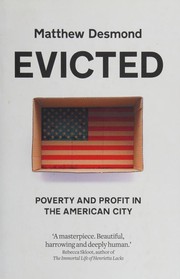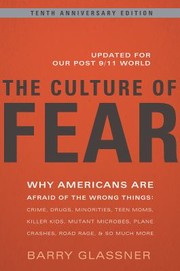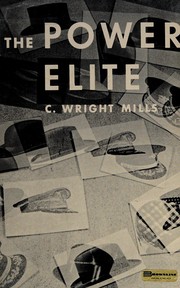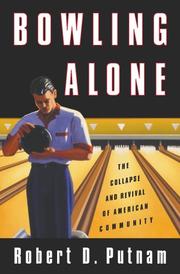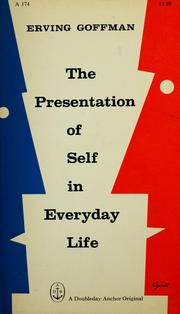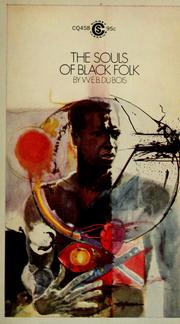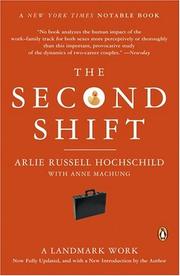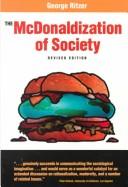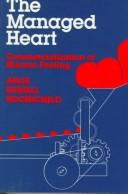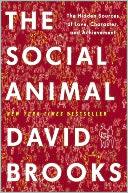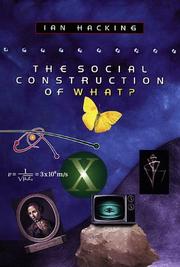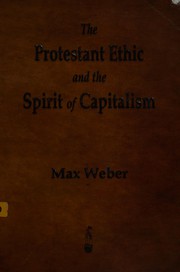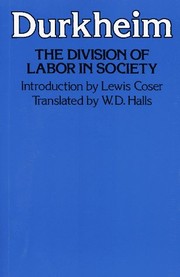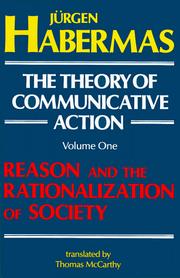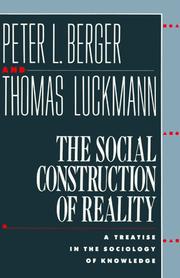Welcome to our list of the 20 best books about sociology! If you’re fascinated by the study of human society and social behavior, you’re in for a treat. Whether you’re a student, a researcher, or just a curious reader, these books on sociology will offer you valuable insights into the complexities of human interaction, culture, and social structures. From classic works to contemporary perspectives, this list has something for everyone interested in delving into the fascinating world of sociology.
Contents
- 1 20 Best Books About Sociology
- 2 Evicted: Poverty and Profit in the American City
- 3 The New Jim Crow: Mass Incarceration in the Age of Colorblindness
- 4 Hillbilly Elegy: A Memoir of a Family and Culture in Crisis
- 5 The Sociological Imagination
- 6 The Culture of Fear: Why Americans Are Afraid of the Wrong Things
- 7 The Power Elite
- 8 Bowling Alone: The Collapse and Revival of American Community
- 9 The Presentation of Self in Everyday Life
- 10 The Souls of Black Folk
- 11 The Second Shift: Working Parents and the Revolution at Home
- 12 The McDonaldization of Society
- 13 The Managed Heart: Commercialization of Human Feeling
- 14 The Social Animal: The Hidden Sources of Love, Character, and Achievement
- 15 The Social Construction of What?
- 16 The Protestant Ethic and the Spirit of Capitalism
- 17 The Division of Labor in Society
- 18 The Theory of Communicative Action
- 19 The Social Order of the Underworld: How Prison Gangs Govern the American Penal System
- 20 Guns, Germs, and Steel
- 21 The Social Construction of Reality
- 22 Conclusion
- 23
- 24 Books about Martin Luther King Jr: 2024 Updated Guide to Essential Reading
- 25 20 Appalachian Trail Best Books to Read – The 2024 Edition
- 26 The 20 Stoicism Reddit Books: Best 2024 Update and Review
20 Best Books About Sociology
Evicted: Poverty and Profit in the American City
by Matthew Desmond
Evicted: Poverty and Profit in the American City by Matthew Desmond is a compelling book on sociology that delves into the heartbreaking realities of poverty and housing in America. Through vivid storytelling and meticulous research, Desmond provides a deep understanding of the impact of eviction on low-income families and communities. The book offers a powerful exploration of the intersection between poverty, housing, and the profit-driven housing market, shedding light on the systemic issues that perpetuate the cycle of eviction and homelessness. Desmond’s work is a poignant and eye-opening book about sociology that challenges readers to confront the harsh realities faced by those living on the margins of society. It is a must-read for anyone seeking to understand the complexities of poverty and housing in American cities.
The New Jim Crow: Mass Incarceration in the Age of Colorblindness
by Michelle Alexander
The New Jim Crow: Mass Incarceration in the Age of Colorblindness by Michelle Alexander is a groundbreaking book on sociology that examines the racial bias and discrimination present in the American criminal justice system. Alexander argues that the War on Drugs has disproportionately targeted and incarcerated African American men, creating a new system of racial control that mirrors the Jim Crow laws of the past. Through thorough research and compelling analysis, she exposes the ways in which mass incarceration perpetuates racial inequality and perpetuates a cycle of poverty and disenfranchisement within black communities. This sociology book sheds light on the systemic issues of racism and injustice within the criminal justice system and calls for a reevaluation of our societal values in order to achieve true equality and justice for all.
Hillbilly Elegy: A Memoir of a Family and Culture in Crisis
by J.D. Vance
Hillbilly Elegy: A Memoir of a Family and Culture in Crisis by J.D. Vance is a compelling and candid account of the author’s upbringing in a working-class family in Appalachia. This memoir offers a poignant exploration of the sociological factors that shape the lives of individuals and communities, delving into themes of poverty, addiction, and the impact of social class on identity and opportunity. Through his personal experiences, Vance provides a thought-provoking commentary on the complex dynamics of American society, making this book a fascinating read for anyone interested in understanding the intersection of culture, family, and sociology.
The Sociological Imagination
by C. Wright Mills
The Sociological Imagination by C. Wright Mills is a groundbreaking book on sociology that challenges readers to think critically about the intersection of personal troubles and public issues. Mills argues that individuals are deeply influenced by the larger social and historical forces at play, and that understanding these connections is essential for a deeper understanding of society. Through vivid examples and compelling analysis, Mills encourages readers to develop a sociological imagination, which enables them to see the world from a broader perspective. This book about sociology is a timeless classic that continues to inspire readers to question the status quo and examine the social structures that shape their lives. Whether you’re a student of sociology or simply curious about society, The Sociological Imagination offers profound insights that will challenge and enlighten you.
The Culture of Fear: Why Americans Are Afraid of the Wrong Things
by Barry Glassner
The Culture of Fear: Why Americans Are Afraid of the Wrong Things is a sociological exploration of the way fear is perpetuated and manipulated in American society. Barry Glassner, in this sociology book, argues that many of the fears that dominate public discourse and media attention are exaggerated or manufactured, leading people to worry about the wrong things. He delves into various aspects of American culture, from crime and terrorism to health and consumerism, to reveal how these fears are exploited for political, economic, and social gain. Glassner’s insightful analysis challenges readers to question the sources and validity of the fears that shape their lives, making this book about sociology a thought-provoking and enlightening read for anyone interested in understanding the underpinnings of fear in modern society.
The Power Elite
by C. Wright Mills
The Power Elite by C. Wright Mills is a captivating book on sociology that delves into the concept of power and its distribution in society. Mills explores how a small group of individuals, including political, economic, and military leaders, wield immense influence over the decisions that shape our lives. He argues that these power elites manipulate the social structures to maintain their dominance, ultimately impacting the lives of ordinary citizens. Through incisive analysis and compelling insights, Mills paints a thought-provoking portrait of the interconnectedness of power and privilege in modern society. This seminal sociology book offers a compelling critique of the power dynamics at play in our world, making it essential reading for anyone interested in understanding the complexities of contemporary society.
Bowling Alone: The Collapse and Revival of American Community
by Robert D. Putnam
Bowling Alone: The Collapse and Revival of American Community by Robert D. Putnam is a fascinating book on sociology that delves into the decline of social capital in America. Putnam highlights the diminishing participation in community activities, such as bowling leagues, and how this trend reflects a broader disengagement from social and civic life. Through extensive research and compelling analysis, the book paints a vivid picture of the erosion of trust and connection in American society. Putnam also offers insights into the potential revival of American community, emphasizing the importance of bridging social capital and the role of technology in fostering social connections. This sociology book provides a thought-provoking exploration of the dynamics of community and offers valuable perspectives on the challenges and opportunities for revitalizing social cohesion.
The Presentation of Self in Everyday Life
by Erving Goffman
The Presentation of Self in Everyday Life by Erving Goffman is a groundbreaking book on sociology that explores the ways in which individuals present themselves to others in their daily interactions. Goffman’s study delves into the concept of impression management, examining how people strategically craft their public personas to control the impressions they make on others. Through insightful observations and compelling examples, Goffman sheds light on the intricacies of social interaction, revealing the subtle tactics and performances that individuals employ to navigate the complexities of everyday life. This sociology book provides a fascinating look at the dynamics of human behavior and the ways in which individuals actively shape their social identities in various social settings. It is a must-read for anyone interested in understanding the intricacies of human interaction and the construction of self in society.
The Souls of Black Folk
by W.E.B. Du Bois
The Souls of Black Folk is a seminal book on sociology that delves into the experience of African Americans in the United States. Written by W.E.B. Du Bois, the book is a collection of essays that explore the social, economic, and political conditions of black people in America at the turn of the 20th century. Du Bois examines the concept of “double consciousness,” the internal conflict experienced by African Americans as they navigate their identity in a society that sees them as “other.” He also discusses the role of education, the legacy of slavery, and the challenges of racism. The Souls of Black Folk is a powerful and thought-provoking sociology book that continues to be relevant in understanding the complexities of race and identity in America.
The Second Shift: Working Parents and the Revolution at Home
by Arlie Hochschild
The Second Shift: Working Parents and the Revolution at Home by Arlie Hochschild is a groundbreaking book about the intersection of work and family life. Hochschild, a prominent sociologist, delves into the concept of the “second shift,” which refers to the additional domestic and caregiving work that working parents, especially women, often take on after their paid employment. Through in-depth interviews and research, Hochschild explores the societal expectations and gender dynamics that contribute to this phenomenon. She also offers insightful analysis on the impact of the second shift on relationships, parenting, and overall well-being. This sociology book sheds light on the complexities of modern family dynamics and the challenges faced by working parents, making it a compelling and thought-provoking read for anyone interested in sociology or gender studies.
The McDonaldization of Society
by George Ritzer
The McDonaldization of Society by George Ritzer is a groundbreaking book on sociology that explores the pervasive influence of fast food culture on contemporary society. Ritzer introduces the concept of McDonaldization, which refers to the standardization, efficiency, and rationalization of processes in various aspects of our lives, from education and healthcare to entertainment and leisure. Drawing parallels between the principles of McDonald’s and societal structures, Ritzer offers a thought-provoking analysis of how these principles have permeated and transformed our world. Through compelling examples and insightful commentary, the book challenges readers to critically examine the impact of McDonaldization on our values, behaviors, and institutions. The McDonaldization of Society is an essential read for anyone interested in understanding the complexities of modern society and the forces shaping our daily lives.
The Managed Heart: Commercialization of Human Feeling
by Arlie Hochschild
The Managed Heart: Commercialization of Human Feeling by Arlie Hochschild is a thought-provoking book on sociology that delves into the impact of capitalism on our emotions. Hochschild explores the concept of “emotional labor” and how it has become a crucial part of many jobs, from customer service to healthcare. She examines the ways in which individuals are expected to manage their emotions to meet the demands of their work, often at the expense of their personal well-being. Through in-depth interviews and case studies, Hochschild sheds light on the emotional toll of this commercialization of human feeling. This book about sociology offers a compelling analysis of the intersection between capitalism, work, and emotions, making it an essential read for anyone interested in understanding the complexities of modern society.
The Social Animal: The Hidden Sources of Love, Character, and Achievement
by David Brooks
The Social Animal: The Hidden Sources of Love, Character, and Achievement by David Brooks is a captivating book about sociology that explores the intricate and often unnoticed influences that shape human behavior. Through the fictional story of a couple, Brooks delves into the latest research in psychology, neuroscience, and sociology to reveal the subconscious forces that drive our actions and relationships. This insightful sociology book offers a thought-provoking exploration of how our upbringing, social environment, and personal experiences impact our decision-making, values, and ultimately, our success in life. The Social Animal provides a compelling and accessible look into the complexity of human nature, shedding light on the hidden dynamics that underpin love, character, and achievement.
The Social Construction of What?
by Ian Hacking
The Social Construction of What? is a thought-provoking book on sociology by Ian Hacking that challenges our understanding of reality and knowledge. Hacking explores the idea that many of the concepts we take for granted, such as mental illness, child abuse, and even numbers, are not natural or inevitable, but rather socially constructed. Through engaging and accessible writing, Hacking delves into the ways in which these constructs are shaped by social, historical, and cultural forces. By examining the dynamic nature of these constructs, he encourages readers to critically evaluate the world around them and question the assumptions that underpin our understanding of reality. This sociology book will undoubtedly leave readers with a deeper appreciation for the complexities of the world we live in.
The Protestant Ethic and the Spirit of Capitalism
by Max Weber
The Protestant Ethic and the Spirit of Capitalism is a seminal book about sociology by Max Weber. In this influential work, Weber explores the relationship between the Protestant work ethic and the rise of modern capitalism. He argues that the values and beliefs of Protestantism, particularly Calvinism, played a crucial role in shaping the attitudes and behaviors that propelled the development of capitalism. Weber’s analysis delves into the intersection of religion, culture, and economics, offering a thought-provoking examination of the impact of religious beliefs on societal and economic structures. This sociology book continues to be a significant and enduring contribution to the study of capitalism and the role of religion in shaping social and economic systems.
The Division of Labor in Society
by Emile Durkheim
The Division of Labor in Society is a seminal sociology book by Emile Durkheim that explores the fundamental question of how societies maintain their cohesion and function. In this groundbreaking work, Durkheim examines the relationships between individuals and society, and the impact of the division of labor on social solidarity. With compelling insights and rigorous analysis, Durkheim argues that the division of labor is a key factor in shaping social order and stability. This book about sociology provides a deep understanding of the dynamics of social organization and the interdependence of individuals within a larger social framework. Durkheim’s work continues to be a foundational text in the study of sociology and offers valuable perspectives on the complex relationships that underpin human societies.
The Theory of Communicative Action
by Jürgen Habermas
The Theory of Communicative Action by Jürgen Habermas is a seminal sociology book that explores the role of communication in shaping society. Habermas delves into the ways in which language and discourse influence social structures and collective action. He argues that communicative rationality is essential for a functioning and just society, and examines the potential for consensus-building through dialogue. This book on sociology challenges traditional sociological theories and offers a new framework for understanding human interaction and societal development. It is a thought-provoking and influential book about sociology that continues to have a significant impact on sociological research and discourse.
The Social Order of the Underworld: How Prison Gangs Govern the American Penal System
by David Skarbek
The Social Order of the Underworld: How Prison Gangs Govern the American Penal System by David Skarbek is a captivating book on sociology that delves into the inner workings of the American penal system. Skarbek provides a comprehensive analysis of how prison gangs establish and maintain order within the complex social structure of prisons. Through meticulous research and compelling case studies, he explores the intricate power dynamics, social norms, and governance mechanisms that exist within these closed-off societies. This sociology book offers a thought-provoking examination of the ways in which individuals adapt and organize themselves in a challenging and often dangerous environment. Skarbek’s insightful exploration sheds light on the often overlooked social dynamics of the American penal system and provides a compelling perspective on the functioning of social orders within unconventional settings.
Guns, Germs, and Steel
by Jared Diamond
Guns, Germs, and Steel by Jared Diamond is a fascinating exploration of the factors that have shaped human societies. This insightful book on sociology delves into the reasons why some societies have advanced technologically and politically, while others have not. Diamond argues that geographical and environmental differences, rather than inherent intellectual or moral superiority, have been the primary drivers of human development. Drawing on evidence from a wide range of disciplines, including anthropology, biology, and history, Diamond presents a compelling case for the role of geography and the environment in shaping the course of human history. This sociology book offers a thought-provoking analysis of the interconnectedness of human societies and the impact of geographical and environmental factors on their development.
The Social Construction of Reality
by Peter L. Berger and Thomas Luckmann
The Social Construction of Reality is a seminal book on sociology by Peter L. Berger and Thomas Luckmann. In this enlightening work, the authors explore the concept of how society collectively creates and maintains a shared understanding of reality. They delve into the intricate ways in which individuals and institutions contribute to the construction of social norms, beliefs, and perceptions. Through a thought-provoking analysis, Berger and Luckmann challenge readers to reconsider their assumptions about the nature of reality and the role of society in shaping it. This groundbreaking book about sociology offers profound insights into the complex interplay between individuals and the larger social structures in which they are embedded, making it an essential read for anyone interested in understanding the dynamics of human society.
Conclusion
Exploring the 20 best books about Sociology has been an enlightening journey into the complexities of human society. From classic works to contemporary perspectives, these books offer valuable insights into the dynamics of social structures, relationships, and institutions. Whether you’re a student, scholar, or simply curious about the world around you, these books provide a rich tapestry of knowledge and understanding. Dive into the diverse array of topics and perspectives within these books and expand your understanding of the world we live in.
Which Sociology book is best?
The best book on Sociology can vary with personal preference, but three widely recommended titles are:
- Evicted: Poverty and Profit in the American City by Matthew Desmond,
- The New Jim Crow: Mass Incarceration in the Age of Colorblindness by Michelle Alexander,
- Hillbilly Elegy: A Memoir of a Family and Culture in Crisis by J.D. Vance.
Each offers valuable insights and could be a great starting point.
What are the best books to learn about Sociology?
For those looking to learn about Sociology, there is a wealth of literature that can provide a comprehensive understanding of the subject. Some of the most highly recommended books include:
- Evicted: Poverty and Profit in the American City by Matthew Desmond,
- The New Jim Crow: Mass Incarceration in the Age of Colorblindness by Michelle Alexander,
- Hillbilly Elegy: A Memoir of a Family and Culture in Crisis by J.D. Vance,
- The Sociological Imagination by C. Wright Mills,
- The Culture of Fear: Why Americans Are Afraid of the Wrong Things by Barry Glassner,
- The Power Elite by C. Wright Mills,
- Bowling Alone: The Collapse and Revival of American Community by Robert D. Putnam,
- The Presentation of Self in Everyday Life by Erving Goffman,
- The Souls of Black Folk by W.E.B. Du Bois,
- The Second Shift: Working Parents and the Revolution at Home by Arlie Hochschild
These books offer a range of perspectives on Sociology, covering various aspects and approaches to the subject.
What are the best books on Sociology?
The best books on Sociology include:
- Evicted: Poverty and Profit in the American City by Matthew Desmond,
- The New Jim Crow: Mass Incarceration in the Age of Colorblindness by Michelle Alexander,
- The McDonaldization of Society by George Ritzer,
- The Managed Heart: Commercialization of Human Feeling by Arlie Hochschild,
- The Presentation of Self in Everyday Life by Erving Goffman,
- The Power Elite by C. Wright Mills.
Each offers unique insights into the subject. While these books on the topic of Sociology are highly regarded, it’s important to note that any list of ‘best’ books is subjective and reflects a range of opinions.
What are the best Sociology books of all time?
Choosing the best Sociology books of all time can vary depending on who you ask, but seven titles that are often celebrated include
- Evicted: Poverty and Profit in the American City by Matthew Desmond,
- The New Jim Crow: Mass Incarceration in the Age of Colorblindness by Michelle Alexander,
- The Culture of Fear: Why Americans Are Afraid of the Wrong Things by Barry Glassner,
- The Presentation of Self in Everyday Life by Erving Goffman,
- The Second Shift: Working Parents and the Revolution at Home by Arlie Hochschild,
- The Managed Heart: Commercialization of Human Feeling by Arlie Hochschild,
- and The McDonaldization of Society by George Ritzer.
Each of these books has made a significant impact in the field of Sociology and continues to be influential today.

